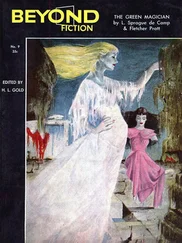Mr Chauhan had given me a four o’clock appointment, but when I arrived, he was not there. I found his wife instead. She was a pretty woman, with a very straight back, neat plait, chiffon sari, and a fixed smile. She sat in her garden under a pergola of roses, at times shouting a reprimand to her two children who were playing nearby. Butterflies rose and fell from the flowers around us, and her maids, one of them a cowgirl I encountered on my walks, served us tea and chocolate cream biscuits. Mr Chauhan would be a little late, she said. “He is so busy these days. Today, he has gone out with the Brigadier. The Brigadier wants to see the work my husband has been getting done for the Regimental Reunion.” She reached for my hand. Hers felt as soft as a petal when it briefly cradled my own, hardened with work. “This gives us women a chance to talk in peace, doesn’t it?” she said with a mischievous smile. “I have a dull married woman’s life. You tell me about yours! So many things happen in it!”
After a pause in which I discovered nothing to say about myself, she began to speak again.
Her husband remained preoccupied, she said. He had much to do: the entire administration of the cantonment. Had I noticed how much better the power supply and water supply had become? That was all because of Mr Chauhan’s untiring efforts to make our town the Switzerland of India. He was getting roads re-laid and parapets painted — oh, all sorts of things — and there was this terrible deadline of the Reunion, about which the Brigadier was so anxious. To top it all, the sign painters kept making spelling mistakes. The Brigadier had noticed one the other day which said “Streaking Route”. Actually, said Mrs Chauhan, the sign painter had written “Trekking” as “Treaking”, and then some mischief-maker — ”who likes to see another man succeed, tell me?” — had gone and added the “S”. Still Mr Chauhan worked on, writing improving slogans, thinking up new ways to better people’s lives. “Just like Mr Lee Kuan Yew in Singapore, my husband tells me. He says Lee Kuan Yew is an Asian Hero.”
It was difficult, she said, living with a writer. Mornings, Mr Chauhan remained closeted in his room. If the gardener came in to ask, “Sa’ab, should I order more manure?” Mr Chauhan waved him away, not replying, and the gardener’s work came to a halt. Sometimes the telephone rang, and Mr Chauhan snapped a surly “Yes?” into it, not even bothering to find out who it was at the other end. Once it was the Brigadier and he had been offended at Mr Chauhan’s tone, not aware that Mr Chauhan was in the grip of inspiration at that moment. The Brigadier had said in a curt voice that he wanted his fences painted and orange trees planted at the back. “Order some saplings, I believe this is the right time,” he had said, and hung up. Mr Chauhan had had to call back to explain.
My mind was wandering. I stared at Mrs Chauhan’s face in an effort to focus on her words, and instead began to imagine her head topped by the mysterious wig Mr Qureshi had found in the boot of a car. There she sat, in a daring frock of the kind the General’s late wife had favoured, in that curling red-haired wig with its two blue clips. She was smoking a cigarette. She had a thin moustache. At times she gargled with a gulp of hot rum that she drank from a teacup.
Mrs Chauhan noticed my faraway look and laughed, “Maya-ji, where have you wandered off to, lost in your thoughts? Tell me too?”
“Oh no, I was listening,” I said. “You were saying the Brigadier keeps interrupting Mr Chauhan’s writing?”
Her husband was infuriated by interruptions, but how was Mrs Chauhan to know they had taken place? When she had called him for lunch a little after the Brigadier’s telephone call, he had been curt with her. “Can’t you see I’m writing? Can’t a writer get some peace in this house?” Alongside the signs he was working on a book. “His Memories,” said Mrs Chauhan, lowering her voice. This took up a lot of his time. Mrs Chauhan waited, the servants idled, the food went cold. “So you must not take it wrong, Maya, that he is late today,” she said, reaching out for my hand again. “He makes me wait also,” she said with her smile. “Maybe that is a woman’s fate!”
Forty long minutes had passed before he came down for lunch that day, and found Mrs Chauhan at the table, surrounded by congealing food, steel plates, bowls, tablespoons, and red napkins. She had not eaten either. “I cannot eat before him,” she said. “Unless he is out of town.” He took her out for a drive to the Golf Course that evening to watch the sun set and make up. “People say I am very lucky,” she smiled. “He is still romantic after all these years, and two children.”
She came to an abrupt halt as if realising the impropriety of discussing conjugal happiness with a widow. She stood up, restless all of a sudden, and said, “Maybe you can tell me what you came to discuss with him. I don’t think he’ll have the time to see you in the next weeks, when he has so much work. Or you can write an application and I will send it to his office.”
I came back and told Diwan Sahib about my misfired attempts at helping Miss Wilson, and he said, “There you are, a man of many talents. If Corbett had picked Chauhan as his biographer the book would have been written and published many times over by now.”
Then he said, “I had a visitor too, while you were gone. The General — again. He hasn’t visited me as many times in all our past years combined.”
That afternoon, Diwan Sahib said, the General had come over and sent Himmat Singh off to make him tea. He had at last found Diwan Sahib free of minders: Veer had gone to Dehra Dun, Mr Qureshi had not reappeared after his morning gins, and I was at Chauhan’s. He had waited for Himmat Singh to leave the room before speaking.
At first the conversation followed the beaten paths, Diwan Sahib said, the General giving news of the latest developments in Ranikhet’s elections, mourning the state of the country. It surprised him, Diwan Sahib said, that a man who earlier boasted he never read the newspaper beyond the headlines should have become so concerned about matters political. When Diwan Sahib had remarked on this, the General had explained in despairing tones that in the past months, watching the way the election campaign was degenerating, he had been overtaken by a sense of impending catastrophe. Something was very rotten in the state of India. In Rudrapur, down in the plains, not far away, a mullah had given a hate-filled speech, and then a pig had been slaughtered and thrown into the mosque. Now the town had curfew from dusk to dawn, in spite of which people were managing to kill each other. There had never been riots here in Ranikhet, but anything could happen now: hatred and anarchy were viruses that spread fast. The country was in the hands of immoral ruffians who would stop at nothing, absolutely nothing, for their own gain. The only worthwhile institution that remained in the country was the Army. Did Diwan Sahib not agree?
The General grew more loquacious as he held forth. Ever more, he felt, it was the duty of the old guard — of whom the oldest in Ranikhet were he and Diwan Sahib — to do what they could for the nation. Nobody else was bothered. The nation relied on them.
For what, precisely, Diwan Sahib had asked him? What was he to do for the country, wheezing and coughing, just back from the dead — and perhaps not back for very long?
Social service had to begin close to home, the General said. They could start by giving over their own possessions, as in the glorious nationalist days. His old uniforms, those were museum pieces now. Old photographs. All his money of course, and his medals — he would bequeath them all to the Army. After all, how many military men now alive had served under the British as well as under Nehru? He had much that would prove invaluable for military historians. Such things would be a worthy reminder of more idealistic times for the cynical youth of today.
Читать дальше












